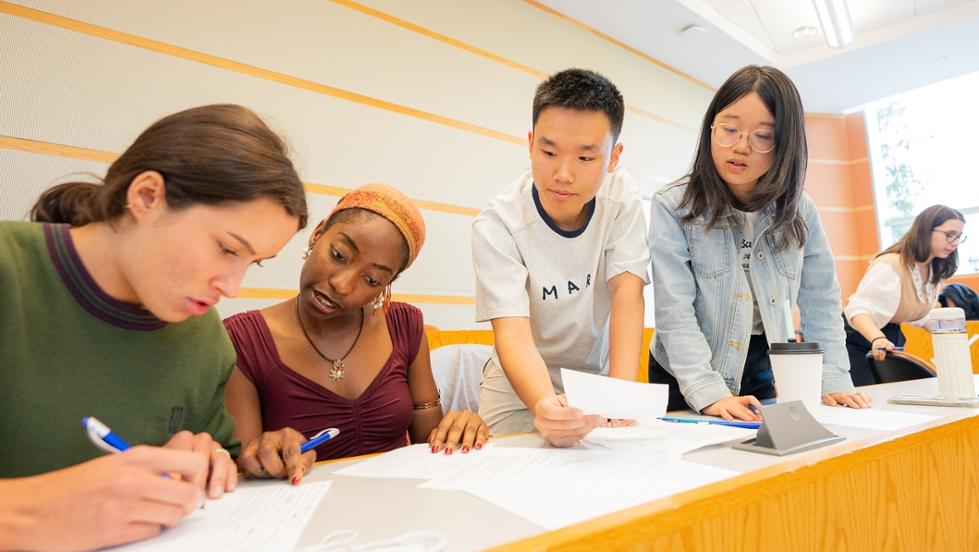
In an article titled “A Summer Camp Where Professors Are the Focus - How two weeks at Hamilton College helped philosophy instructors become more innovative teachers,” the writer focused on how the camp “has offered philosophy instructors an opportunity to develop strategies that show students philosophy is not just challenging, but enlightening, fun, and collaborative.”
HCSPiP is designed with a pedagogical framework in mind; it’s as much an opportunity for professors to develop their teaching skills as for students to develop their thinking skills.
According to camp founder and Professor of Philosophy Russell Marcus, “What they [students] need are professors who can help them understand what they’re reading and hearing, and apply it as they navigate the world. That’s the core, I think, of what I’m trying to do,” he explained to the Chronicle, “building networks of folks who understand the joy of learning together.”
Marcus was also featured talking about the Philosophy Camp on tea for teaching on a podcast titled "A Summer to Learn" (episode 410).
In a much newer program, Dean of Engaged Education KinHo Chan is introducing a Fail Better campaign this semester throughout the various student resource centers. The program was highlighted by a recent Inside Higher Ed article titled “How One College Aims to Help Students Fail Better.”
According to the article, “Reducing failure rates in higher education is typically a mark of student success. But Hamilton College is flipping the narrative this academic year with a new campaign that teaches students to fail and bounce back.
The “failing better” campaign, led by the student success division, ALEX, provides resources and support for staff to push students out of their comfort zones and help them learn to recover from setbacks. The goal is to create a culture shift that makes students more resilient and better prepared to address challenges head on.”
“I want to create a campus culture where failure is reframed as an essential component of learning, innovation, and personal growth,” Chan said.
Posted September 11, 2025


